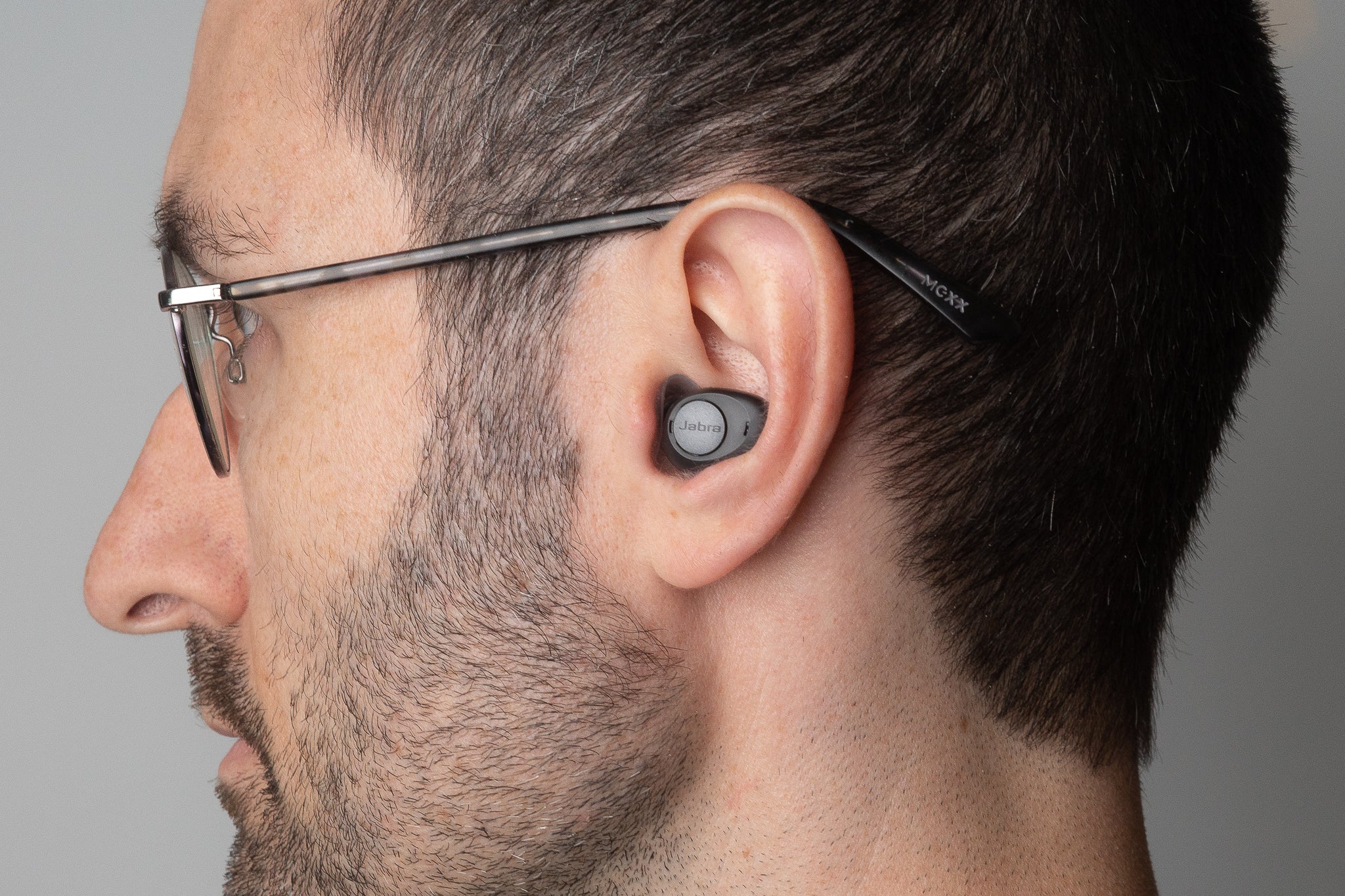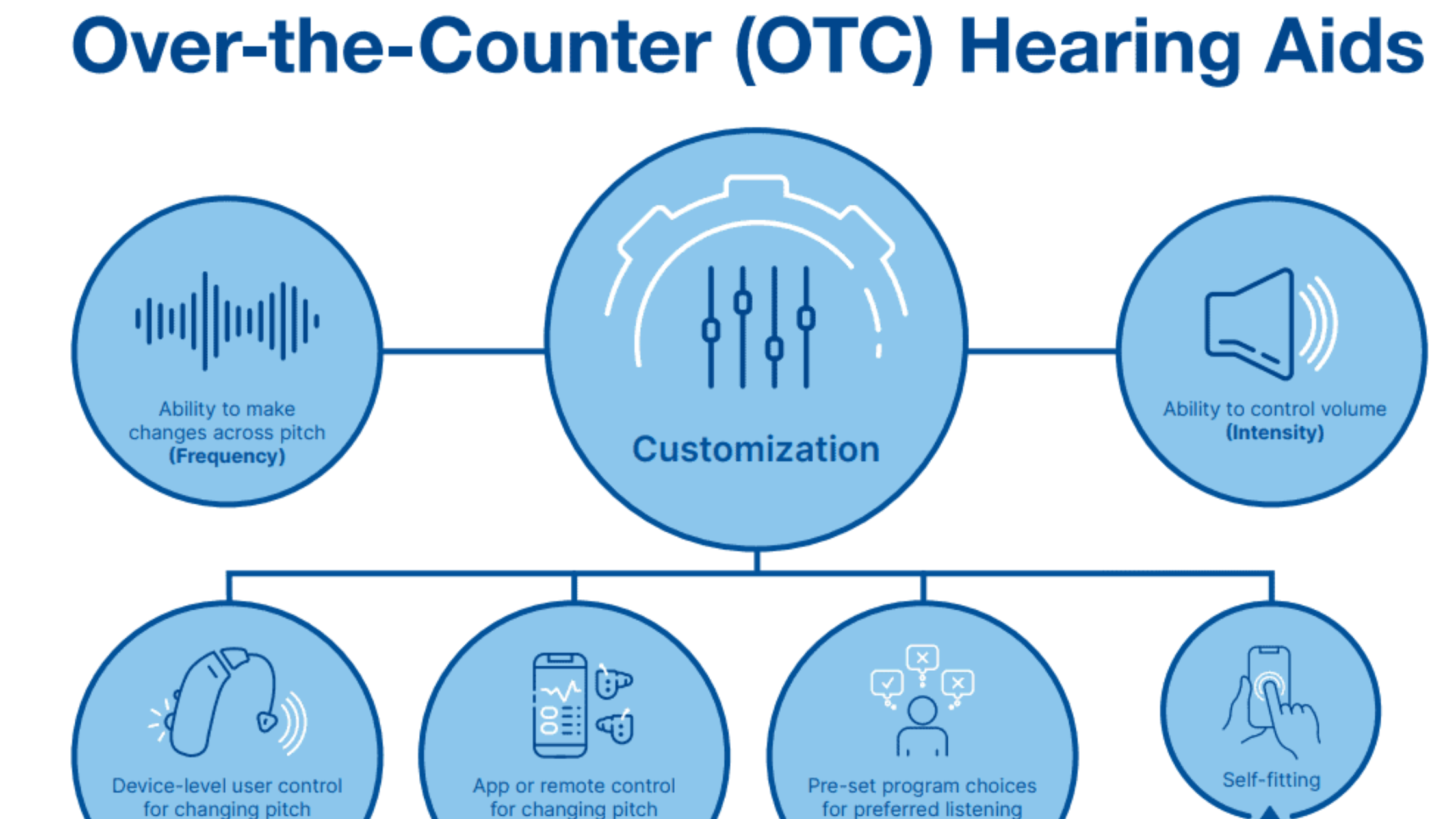Introduction
Over-the-counter (OTC) hearing aids represent a groundbreaking solution for adults grappling with mild-to-moderate hearing loss. These compact yet powerful devices offer a convenient and budget-friendly avenue to enhance auditory experiences without the need for a prescription. Before diving headlong into a purchase, let’s delve into the realm of OTC hearing aids, exploring their nature, functionality, and suitability for your unique needs.
Understanding OTC Hearing Aids
Envision a petite electronic amplifier snugly nestled in your ear canal, discreetly augmenting incoming sound waves—that’s the essence of an OTC hearing aid. Unlike conventional counterparts, these devices don’t demand an audiologist’s evaluation or a substantial financial commitment.

How Over-the-Counter (OTC) Hearing Aids Hearing Aids Operate
The operational mechanism is elegantly simple:
- Sound capture: Embedded microphones within the hearing aid seize ambient sounds.
- Amplification: A sophisticated chip elevates the sound to a comfortable listening level.
- Delivery: The intensified sound is channeled into your ear canal via a diminutive speaker.
Some OTC hearing aids boast additional features such as:
- Noise reduction: Filters out background noise, fostering clearer conversations.
- Bluetooth connectivity: Streams audio directly from your phone or tablet.
- Multiple volume settings: Facilitates customization based on your surroundings.
Who Stands to Benefit from OTC Hearing Aids?
If you encounter the following challenges, OTC hearing aids could be your ideal solution:
- Mild-to-moderate hearing loss: Struggling in noisy environments, missing parts of conversations, frequently adjusting volume settings.
- Social isolation: Steering clear of conversations or gatherings due to hearing difficulties.
- Preference for a convenient solution: Seeking to enhance hearing without enduring a protracted medical process or significant financial burden.
Advantages of OTC Hearing Aids
Embracing OTC hearing aids comes with a myriad of benefits:
- Convenience: No appointments, prescriptions, or waiting periods required—simply purchase and start using!
- Affordability: Priced significantly lower than traditional hearing aids, making them accessible to many.
- Discreetness: Compact and often inconspicuous, allowing you to improve your hearing without drawing attention.
- User-friendly: Pre-programmed settings and intuitive controls make them easy to operate.
- Improved quality of life: Facilitated communication, heightened social engagement, and a revitalized sense of connection.
Are There Any Risks?
While generally safe, a few considerations are paramount:
- Improper fit: One size may not universally fit all. Seek professional advice for a tailored fit if discomfort arises.
- Incorrect amplification: The wrong amplification level can exacerbate hearing issues; start conservatively and adjust gradually.
- Masking underlying conditions: Hearing loss may signify an underlying medical issue; consult a healthcare professional before opting for OTC aids.
Selecting the Right OTC Hearing Aid
- Read reviews and comparisons: Learn from the experiences of other users regarding different brands and features.
- Identify your needs: Determine whether you prioritize noise reduction, Bluetooth connectivity, or specific price ranges.
- Consult your doctor: Seek professional advice to address concerns and obtain an informed opinion before making a decision.
Frequently Asked Questions (FAQ)
Q: How long can I wear OTC hearing aids?
A: Begin with short durations and gradually increase as your ears acclimate; generally, no more than 16 hours per day is recommended.
Q: Can I use OTC hearing aids if I have severe hearing loss?
A: No, OTC aids cater to mild-to-moderate loss; consult an audiologist for severe impairment.
Q: Do OTC hearing aids need programming?
A: Most come pre-programmed with basic settings, while some offer fine-tuning through a smartphone app.
Q: How do I clean and maintain OTC hearing aids?
A: Gently wipe them with a soft, dry cloth after each use; refrain from water and harsh chemicals.
Q: What is the lifespan of an OTC hearing aid?
A: Typically, they last 1-3 years, contingent on usage and care.
Conclusion
The landscape of hearing care is undergoing a transformative shift with the advent of OTC hearing aids. These devices are reshaping how we address hearing challenges, offering a blend of accessibility, affordability, and enhanced quality of life.



2 thoughts on “Over-the-Counter (OTC) Hearing Aids: A Comprehensive Guide for Adults with Mild-to-Moderate Hearing Loss”